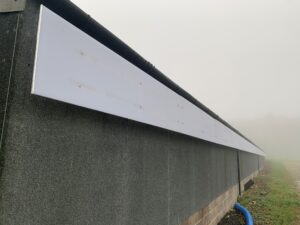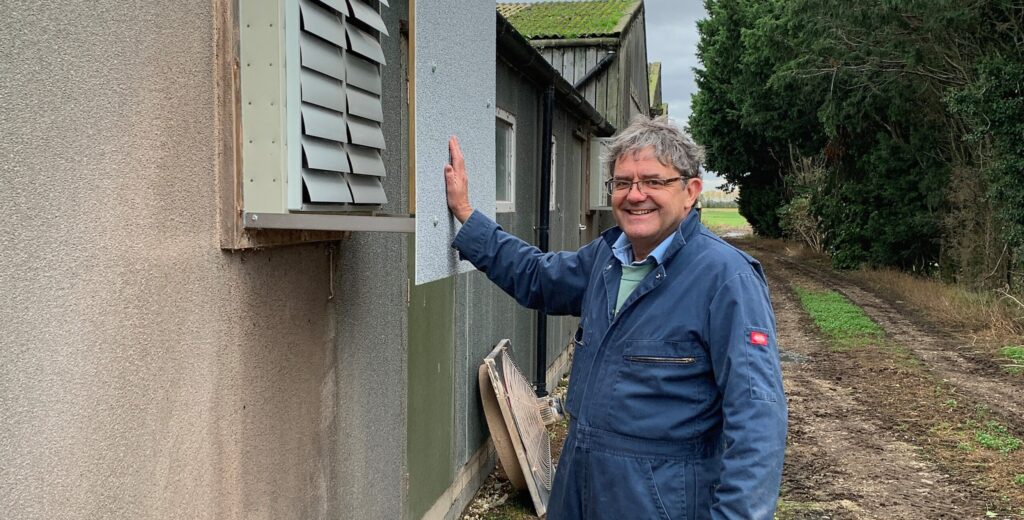Ventilation systems that have not been properly protected have become dangerous to the livelihood of pigs on farms as climate change brings strong winds that stop them from operating as they should.
ARM Buildings Limited, who developed the laminated panel concept, said these problems have become more common, and can cause a variety of management issues. especially in farrowing, weaner and finishing houses. It’s a problem they’ve have to deal with more and more, as gales have been reported.
See also: Pig welfare outweighs climate concerns for customers, study shows
ARM pig environmental specialist, Tim Miller, said: “Increasingly, we are being called out to deal with issues caused by ultra-strong winds, which are overriding both the inlet and outlet shutters, resulting in draughts and interfering with temperature control.”
“In farrowing houses in particular, cold draughts can chill young piglets in pens near inlets and scouring can sometimes occur, while in finishing houses, there may be outbreaks of vices, such as tail-biting, following the high winds we have been experienced recently.”
Mr Miller explained that there are simple and inexpensive solutions for any farmers of business suffering from climate-related havoc. Additional external baffles made from weather-proof panels can be fitted to act as a barrier, breaking the full force of the wind and keeping the ventilation system functioning as intended.

These can be more effective than traditional cowls, which have sometimes made the problems worse. Wind damage is the most prevalent in ACNV systems, and also where inlets are passive, and not mechanically controlled by an operator.
“In winter, when fans are operating at reduced speeds, high winds can override, or even stall, the fans, and open the shutters. Sometimes, if the shutters have not been cleaned and maintained properly, they can stick open and make the problem worse,” said Mr Miller.
“In weaner houses, where heating is provided, this increased leakage can be extremely expensive!”
As the full effects of climate change continue to mount, ARM warm that this problem could start to be seen more frequently.




